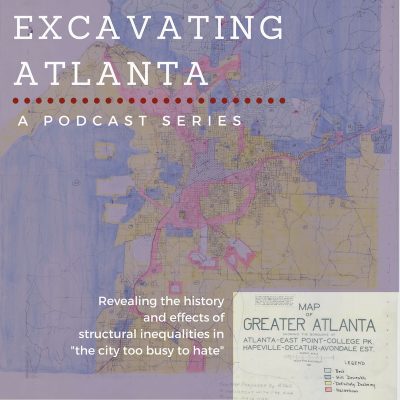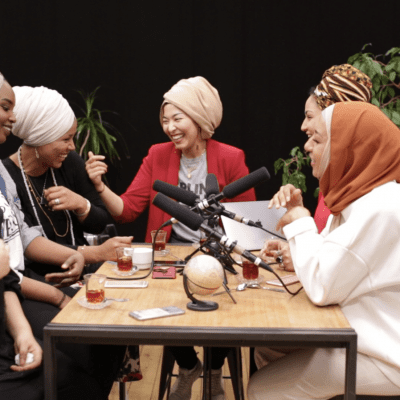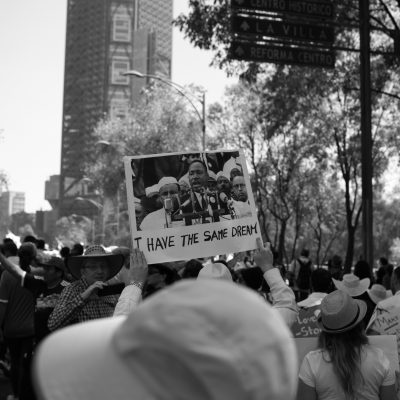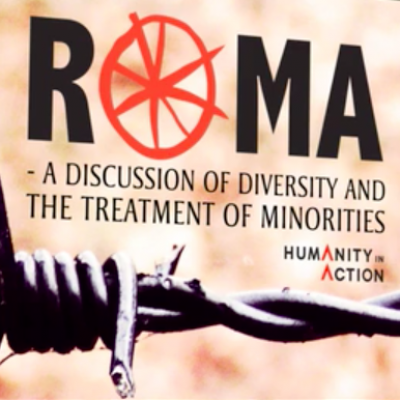Article
Senior Fellow Virginia Spinks was inspired to create Excavating Atlanta: A Podcast Series after learning about the concept of restorative justice, both during the application process and during her Humanity in Action Fellowship. Learning how Germany deals with its dark past inspired her to seek similar solutions in the United States.
Atlanta is one of the most inequitable cities in the nation and yet it has the reputation of being a unique place where people of color flourish. Virginia wanted to debunk the myth that Atlanta is a perfect place for fostering diversity and inclusion and expose how Atlanta has historically attempted to keep people of color and the poor oppressed and separate from white prosperity.
Virginia’s project addresses this problem by researching the ways Atlanta’s history has not always been equitable and open by having conversations with experts about historical city policies that have residual effects on the marginalized populations in today’s Atlanta. These conversations were recorded and turned into an educational podcast series available on the National Center for Civil and Human Rights’ website with interactive episode transcripts to guide listeners through the conversations.
Virginia’s project addresses this issue by researching the ways Atlanta’s history has not always been equitable and open by having conversations with experts about historical city policies that have residual effects on the marginalized populations in today’s Atlanta.
Virginia formed a partnership with the National Center for Civil and Human Rights (NCCHR). She attended many of their public programs, formed relationships and pitched the already formulated project to them (a budget, timeline and project outline). She then reached out to individuals who she felt had the knowledge to dive deep into the subject matter and set up meetings with them. After each recorded interview, she edited the conversations via Garageband and found local music artists who could provide theme music to the project. She also did additional research and developed a supplemental interactive transcript that could be used for educational purposes. After publishing, the NCCHR disseminated it to its educational partners.
Virginia hopes to continue this work and create more episodes. Through social media and other avenues, she is trying to spread the word about these issues to young people in Atlanta and around the world.




